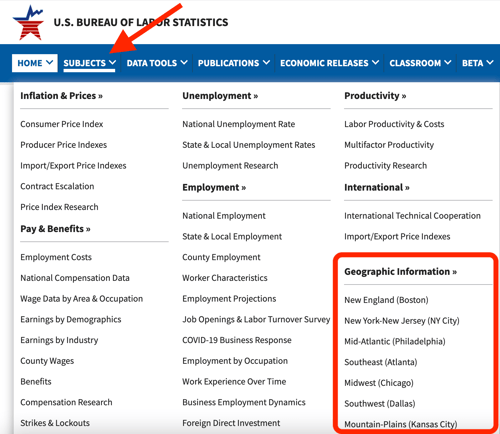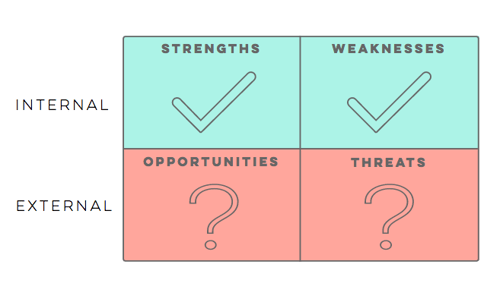As a product marketer, product launches are a core component of your job. They can also be one of the hardest. Before embarking on this large endeavor that involves a multitude of stakeholders, be sure to have a plan in place and ask yourself, as well as all other involved parties, the necessary, critical questions. It can be very easy to lose sight and miss the foundational elements of the launch.
It is extremely helpful to have a launch guide outlining each step in the process, and these nine questions should be what you tackle first.
Get the Guide to Competitive Intelligence for Product Marketers
1. What are we launching?
This question is a strong starting point because, of course, you can’t logically plan a product launch with no product. Before you plan your product launch, you need to have your product defined and ready for the market. If it is difficult to clearly and define what product or feature your organization is launching, then it might be time to go back to the drawing board. Once you and your team sort out the most basic question, you’re ready to ask yourself more prep questions and plan each step of your product launch.
2. Why are we launching?
First and foremost, asking yourself why you’re launching a product is crucial. Is there a market problem that you can solve? Articulating the market problem(s) the product or feature is solving and the opportunities that come with will make the messaging, marketing, and sales enablement materials so much easier to create. If you and your team cannot articulate why you are launching this product, solution, service, etc., then a strong follow-up question to ask yourself is, “Should we be launching anything at all right now?” Make sure that you’re taking advantage of the opportunity to launch a product that benefits your market.
3. Who is the target audience for this launch?
You don’t want to plan a product launch without analyzing your market and identifying your target personas. You need to have a complete understanding of your market and its needs so that you can build messaging that resonates. If the target audience(s) for your launch is not identified, the launch will potentially fail, because your messaging will not reach the right people and resonate.
4. Who is affected by this launch? Who is part of the launch team?
Outlining all internal and external stakeholders who will be affected by the launch will alleviate future headaches. If you forget to include customer support, services, account management, or partners, there may be some unhappy campers and missed opportunities. Also be sure to include the right people on your launch team including product management, enablement, pre-sales, services, support, and marketing.
5. When are we launching?
A clear deadline and timeline to work against are crucial. Launching a new product at a time that doesn’t make sense may negatively impact the results of your launch. Will your launch coincide with an industry event? Is it dependent on a certain time of year? This is an important question to ask up front so you can plan and schedule a strategic launch and avoid fire drills in the end.
6. What is the competitive landscape?
Knowing and understanding the competitive landscape prior to launch will only help you better prepare your messaging, sales enablement content, and execution strategies. This is critical for the entire launch to be successful. Not only should you understand your market, but you need to understand your competitors. What do their products have that yours don’t? What do their customers say about their products? It may be beneficial to perform a SWOT analysis on your competitors to get a deeper understanding so that you know what you’re going up against with your new product.
7. Are there any dependencies/risks?
Talking through all the risks and dependencies can help the entire launch team solve or possibly avoid issues that could stall a launch. These risks and dependencies could relate to engineering being pulled into another project, competitive factors, and customer escalations. While we always plan for a successful product launch, it’s critical that you and your team also understand what could potentially go wrong, and have a plan in place to work through it.
8. What is the messaging / value prop(s)?
For any launch, a clear message and value proposition is essential. How will you differentiate your product from the competition? How will you articulate to the market the problem the product solves? You want to make sure that your messaging is digestible for your target audience so that they completely understand the new benefits of the product and the value they will gain from implementing your product or solution. These are all things you need to consider at the beginning of launch planning.
9. Is there a pricing and packaging strategy in place?
Solidifying the pricing and packaging well before launch is a must, although, your team might want to do this even sooner if it affects how your product is built. Having the pricing squared away allows for product marketing to have sales enablement and web content, if you choose to list pricing on your website, done without rushing in the end.
Covering and outlining in writing these foundational questions first will help determine if the product launch should be a go or not. And, by walking through a launch guide each time, you can feel confident no steps are missed and that your launch will be a success.

Seeing is believing! Check out Crayon for yourself.
Take a Product TourRelated Blog Posts
Popular Posts
-
 The 8 Free Market Research Tools and Resources You Need to Know
The 8 Free Market Research Tools and Resources You Need to Know
-
 6 Competitive Advantage Examples From the Real World
6 Competitive Advantage Examples From the Real World
-
 How to Create a Competitive Matrix (Step-by-Step Guide With Examples + Free Templates)
How to Create a Competitive Matrix (Step-by-Step Guide With Examples + Free Templates)
-
 24 Questions to Consider for Your Next SWOT Analysis
24 Questions to Consider for Your Next SWOT Analysis
-
 How to Measure Product Launch Success: 12 KPIs You Should Be Tracking
How to Measure Product Launch Success: 12 KPIs You Should Be Tracking



